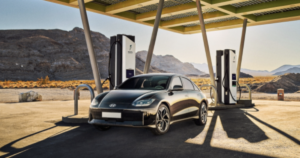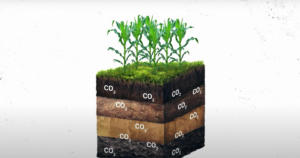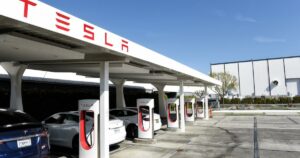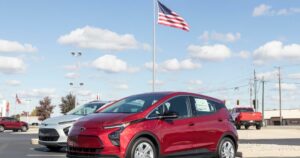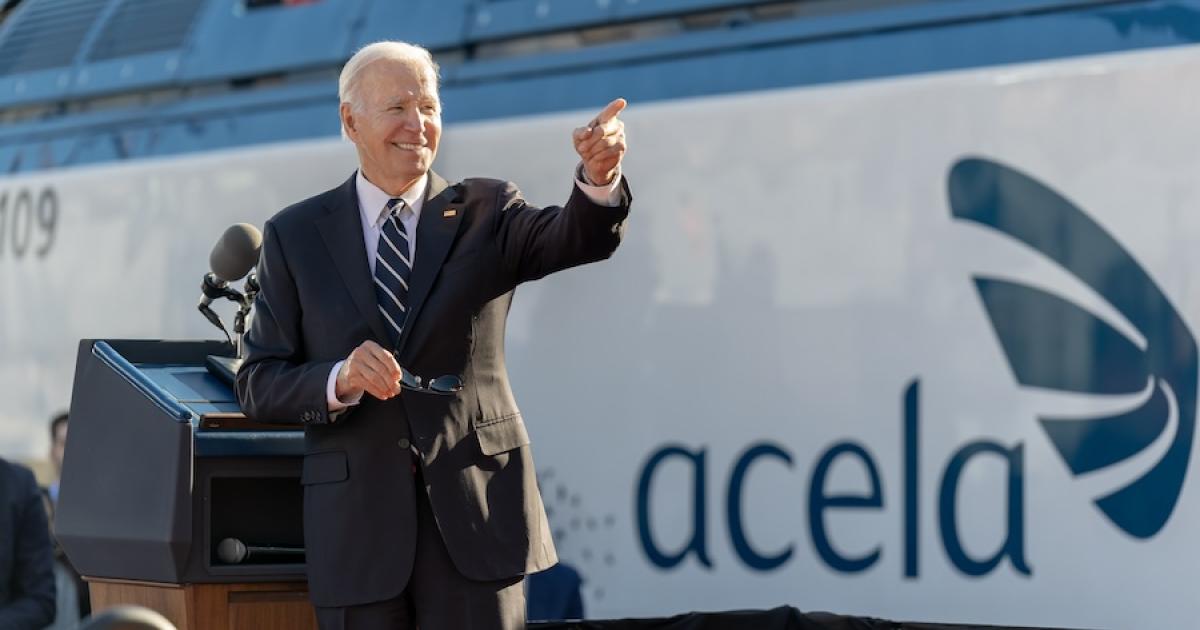
As part of its ambitious goal to make transportation sustainable in the future, the Biden-Harris administration announced a plan today to cut emissions from federal employee travel.
The scale of federal travel is massive: In 2022 alone, federal workers took more than 5.3 million business-related trips. Of those, 2.8 million were flights. According to numbers published by the FAA and the EIA, federal employees on those flights would have generated an estimated 1.5 billion metric tons of CO2.
Senior administration officials hope the new federal work travel policy will serve as a cost-effective and climate-friendly blueprint for future private sector travel.
“Federal employees and the public are going to see new ways to reduce emissions as we travel to get things done,” said Robin Carnahan, administrator of the General Services Administration, in a statement. These “new ways” of sustainable travel include the prioritization of electric vehicles (EV) — both rentals and rideshares — exclusively using rail travel for distances up to 250 miles, and whenever possible, using public transit.
Private sector partners
The plan follows Biden’s recent announcement to invest $8.2 billion into 10 new passenger rail lines across the country, including the first U.S. federal high-speed rail project between California and Nevada.
To ensure multiple sustainable travel alternatives are available, the Biden administration is partnering with businesses in the hospitality, travel, and ride/rideshare sectors, including;
- American Express Global Business Travel, which is launching new software that prioritizes EVs over gasoline cars for companies booking business travel, and prioritizing the booking of hotels with EV chargers;
- Hertz, which has committed to increase its EV rentals available to corporate travelers in the North American market. Its goal is to increase the number of available EVs for corporate travelers in 2024 by eight times that of 2022; and
- Marriott International, which announced this morning it will commit to more than double the number of hotels with EV chargers by 2027. Marriott currently has 4,100 EV chargers across its more than 1,000 hotels.
“Today’s new public and private actions will bring affordable electric vehicles to more Americans, tackle the climate crisis, and save taxpayer dollars,” John Podesta, senior advisor to the president for clean energy innovation and implementation, told GreenBiz.
Climate legislation like the Inflation Reduction Act, Bipartisan Infrastructure Law, and Chips and Science Act, contributed to the participation of the private sector, senior administration officials told GreenBiz, due to access to new or expanded tax credits that help corporations’ bottom lines.
“We are investing heavily in catalyzing the market for lower carbon materials through investments in the Inflation Reduction Act and other work,” said Andrew Mayock, federal chief sustainability officer of the White House.
All of this ultimately supports Biden’s Investing in America package, a $1.2 trillion infrastructure program for highways, transit, rail, water and electricity grid renewal, which began in November 2021.
“By directing federal employees to use clean transportation,” said Brenda Mallory, chair of the White House council on Environmental Quality, “we’re saving taxpayer dollars, catalyzing a clean energy economy, and reducing our impact on the air quality in the communities we visit.”
- SEO Powered Content & PR Distribution. Get Amplified Today.
- PlatoData.Network Vertical Generative Ai. Empower Yourself. Access Here.
- PlatoAiStream. Web3 Intelligence. Knowledge Amplified. Access Here.
- PlatoESG. Carbon, CleanTech, Energy, Environment, Solar, Waste Management. Access Here.
- PlatoHealth. Biotech and Clinical Trials Intelligence. Access Here.
- Source: https://www.greenbiz.com/article/biden-administration-announces-policy-decarbonize-federal-work-travel
- :has
- :is
- $UP
- 000
- 1
- 10
- 100
- 2021
- 2022
- 2024
- 250
- 8
- a
- access
- According
- across
- Act
- actions
- administration
- advisor
- affordable
- AIR
- alone
- alternatives
- ambitious
- American
- Americans
- an
- and
- Andrew
- announced
- Announcement
- Announces
- ARE
- AS
- available
- began
- between
- biden
- Biden Administration
- Billion
- bipartisan
- blueprint
- booking
- both
- Bottom
- bring
- business
- businesses
- by
- california
- carbon
- cars
- catalyzing
- Chair
- chief
- Chips
- clean
- clean energy
- Climate
- climate crisis
- co2
- commit
- committed
- Communities
- Companies
- contributed
- Corporate
- cost-effective
- Council
- Credits
- crisis
- Currently
- Cut
- decarbonize
- directing
- dollars
- done
- double
- due
- economy
- EIA
- Electric
- electric vehicles
- electricity
- Emissions
- Employee
- employees
- energy
- energy innovation
- ensure
- environmental
- estimated
- EV
- evs
- exclusively
- expanded
- express
- faa
- Federal
- First
- Flights
- follows
- For
- from
- future
- gasoline
- General
- generated
- get
- Global
- global business
- goal
- going
- Grid
- Have
- heavily
- help
- highways
- hope
- hospitality
- hotels
- House
- HTTPS
- Impact
- implementation
- in
- include
- Including
- Increase
- inflation
- Infrastructure
- Innovation
- International
- into
- Invest
- investing
- Investments
- IT
- ITS
- John
- jpg
- launching
- Law
- Legislation
- like
- lines
- lower
- make
- Market
- massive
- materials
- metric
- million
- more
- morning
- multiple
- NEVADA
- New
- North
- November
- November 2021
- number
- numbers
- of
- Officer
- officials
- on
- or
- Other
- our
- over
- package
- part
- participation
- partnering
- PHP
- plan
- plato
- Plato Data Intelligence
- PlatoData
- policy
- possible
- president
- prioritization
- prioritizes
- prioritizing
- private
- private sector
- Program
- project
- public
- public transit
- published
- quality
- Rail
- recent
- reduce
- reducing
- reduction
- rentals
- Robin
- s
- Said
- Save
- saving
- Scale
- Science
- sector
- Sectors
- see
- senior
- Senior Advisor
- serve
- Services
- Software
- Statement
- Supports
- Sustainability
- sustainable
- tackle
- tax
- Taxpayer
- than
- that
- The
- The Future
- These
- things
- this
- those
- Through
- times
- to
- today
- told
- tons
- took
- transit
- transportation
- travel
- travelers
- Trillion
- u.s.
- Ultimately
- use
- using
- Vehicles
- Visit
- Water
- ways
- we
- were
- whenever
- which
- white
- White House
- will
- with
- Work
- workers
- would
- zephyrnet



